How to Work on Your Chess: The 5 Step Method
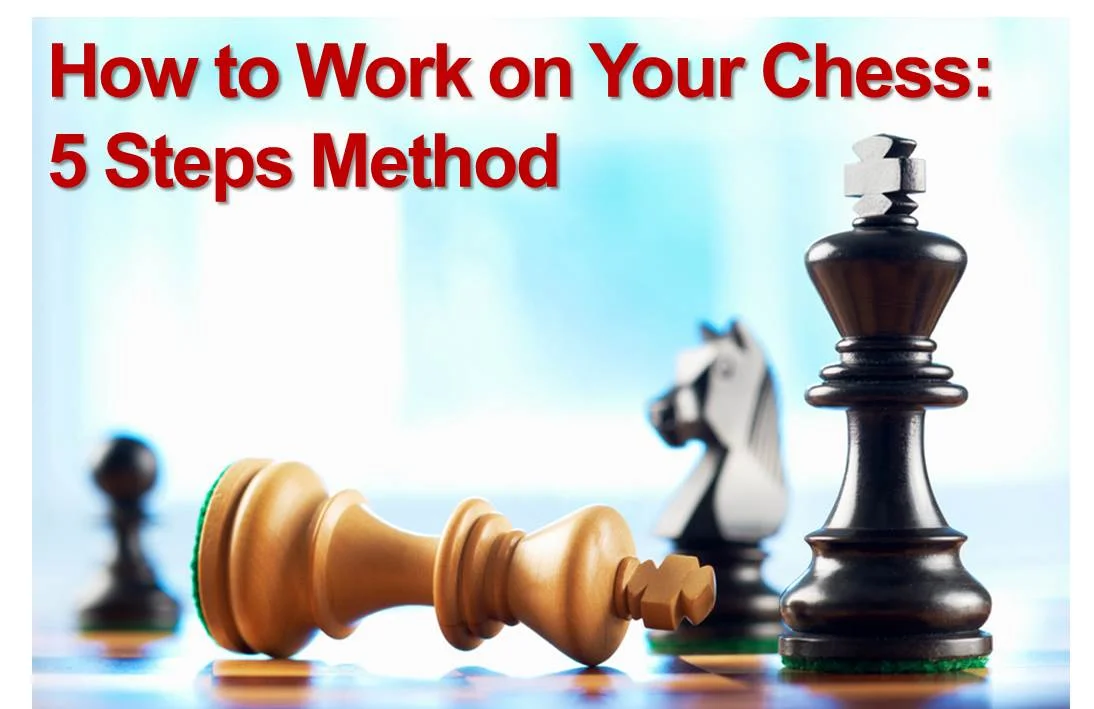
Today I will talk about the 5 very important steps every chess players should take in order to improve their chess. These are the most fundamental training techniques that every chess players needs to do in order to make progress at chess and to get better at chess.
I will describe the things you need to do in order to improve you playing strength in a step-to-step manner.
Step 1.
Solving tactics, studies and chess compositions should be the first step for those looking for self-improvement.
Step 2.
The next step should include studying Masters/Grandmasters games. You don’t need to rush into this step however. First you should become familiar with simple tactics, such as forks, double attacks, pins, skewers, simple mating nets, etc. Without having these basic things in your chess toolbox it would be very hard to analyze the games of the strong players.
I want to add couple more words about going over masters’ games. Ideally, you want to first go over the game without reading the commentary and see how much you can understand yourself. Try to look for the plans, tactics, mistakes, middle-game to endgame transitions, etc. Put yourself in the shoes of the either player and try to analyze the position from this perspective. You can stop from time to time and ask yourself, ‘what would I play here’ ? You need to try to understand the moves and the ideas hidden behind them.
Then, after preliminary work is completed, you should go over the annotation move-by-move, fill in the blanks you have missed with self-analysis. This approach of studying games is much more productive and beneficial then just reading the annotation and rushing through the game. Some chess coaches recommend going over the game as many as 4-5 times in order to understand it well. I think it is a little bit extreme and 2-3 times is sufficient enough if done as outlined above.
In our recommended training program we have collected 21 well annotated games, purpose of which to teach you an important idea that can be applied in your own games.
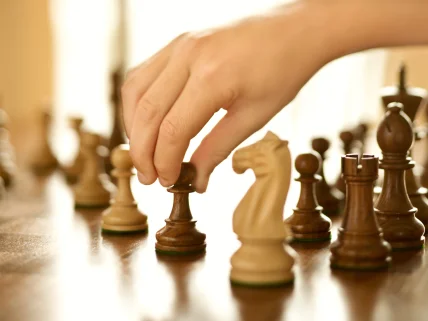
Practice. Practice. Practice.
At the same time, every player needs to apply what he learned to actual games. Practicing those skills is absolutely necessary in order to be able to get better at chess.
An important condition without which self-improvement is not possible is motivation. Only a well-motivated individual can spend hours on chess, productively studying theory, playing practice games and not giving up regardless of the outcome. These kind of players will achieve serious improvement quickly.
Step 3.
In order to take full advantage of analysis in the books a proper notation understanding skills are required. When you look at the notation, you should be able to automatically interpret the moves, without the necessity to think about it or to use a cheat sheet.
Some players who’ve been playing chess for a long time are not proficient at notation, and need to count the squares on the board or read the letters or numbers below the bottom row.
If that’s you, I can suggest one very simple exercise to learn the notation in the proper way. When you play games, use an unlabeled board (the one without numbers and letters on it) and write down your moves as quickly as possible.
You should be able to point a square and say d4, h2, a7 without reading it.
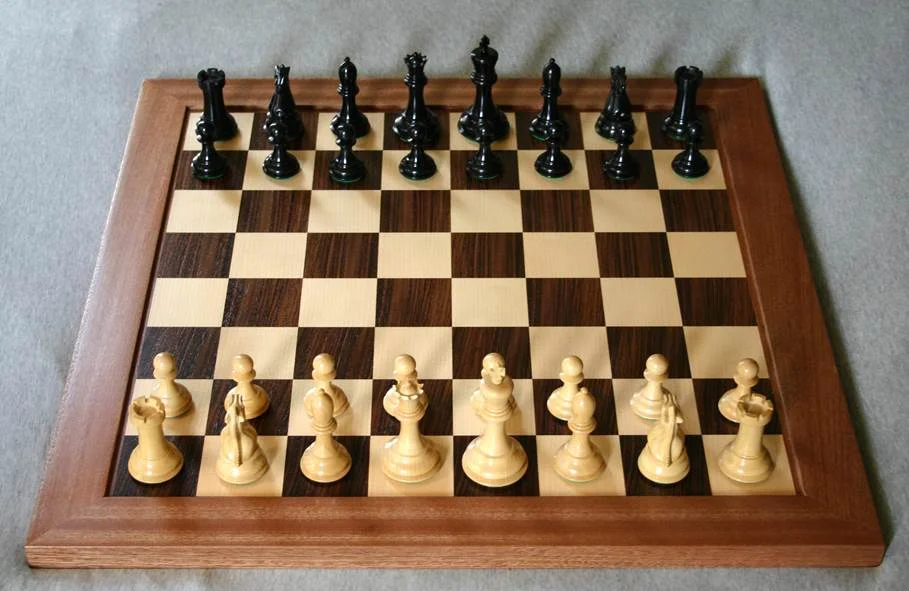
Step 4.
Every chess player needs not only to analyze the masters’ games, but also to spot mistakes in his own play. When analyzing your games you should always look for ways to improve the moves and to write a proper annotation. When analyzing a game you should try to answer these 3 questions:
1. Where the main mistakes were made and how can it be played better? (for either player)
2. What was the plan for both sides?
3. What was the reason of your mistake? (time issues, not deep enough calculation, blunders, etc.)
Analyzing and annotating your own games is extremely important for improving your game.
Another crucial point that I want to stress is an importance of a systematic training. By working on chess for just 30 minutes 3-4 days a week you can make much more progress that if you jam multiple training sessions in one 2 hour session per week.
Many players assume, quiet incorrectly, that by concentrating on one area of chess for a long period of time you can make significant progress. They spend long time memorizing opening lines or studying middle-game themes without seeing much overall progress in their chess.
Some of the most prominent coaches however disagree and suggest that it is most effective to study multiple things during one training session. For instance some theory first, then classical game analyses, tactics and endgame training. I believe in this approach as well, and implement it in our raining program. It is designed so that you can learn multiple very important things during one short training session, and do it consistently, on daily basis.
Step 5.
The next step in chess development is to study the history of chess, along with biography of your favorite players and their games. Pick the games of players like Botvinnnik, Smyslov, Nimzowitsch, etc. and learn from their wisdom and ideas.
You can also study the games of modern players, but do not forget about the classics, since the plans and ideas are much easier to understand and apply in your own games.
Another very important part of training is to participate in rated chess events (assuming you want to progress as a tournament player). The recommended number of tournaments an improving chess player should play is 5-6 per year. That way you can apply everything you have learned to practice in the actual games.

Let’s summarize what we have talked about today. There are 5 steps that are crucial for chess improvement:
1. Solving tactics, studies and chess compositions.
2. Studying Masters’ games, playing practice games and staying motivated.
3. Perfecting the notation reading/recording skills.
4. Analyzing your own games, studying endgames.
5. Chess history and playing tournament games (5-6 events per year).
To make your job easier we have compiled a complete training program with a theoretical and practical parts well complimenting each other, so that you won’t need to spend time finding study materials, going over dozens of books, etc. You will only need to spend about an hour daily for 3 week period to see serious results.
***



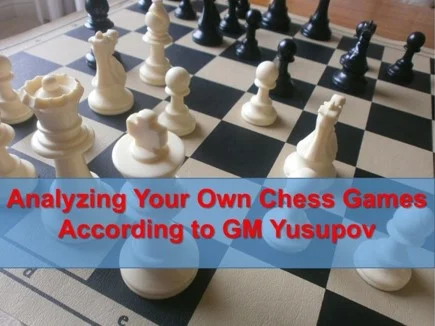
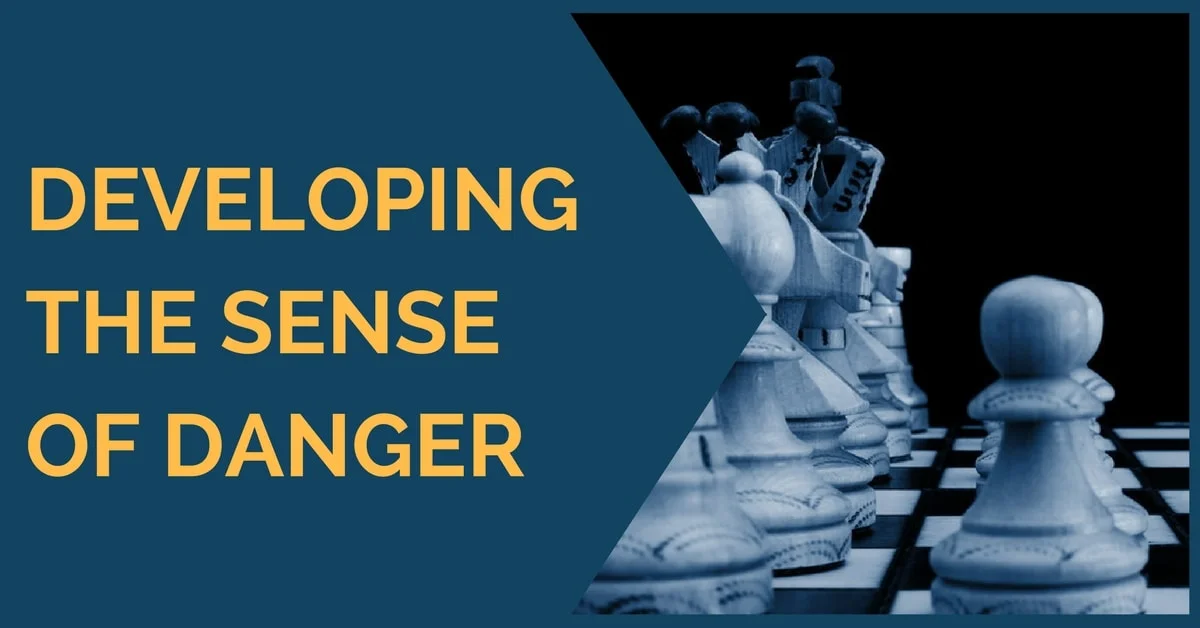
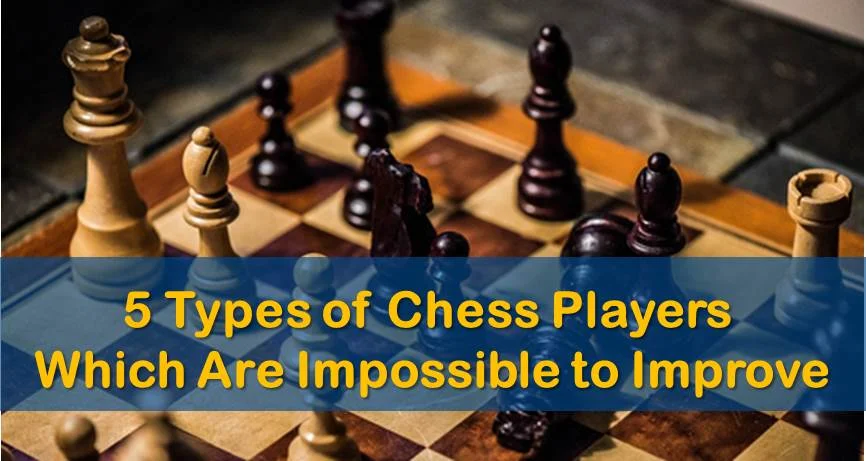




Comments: